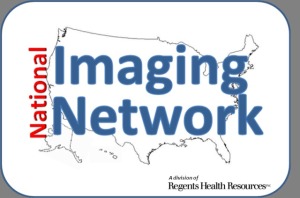by
Olga Deshchenko, DOTmed News Reporter | February 11, 2011
Ask anyone involved in the imaging business today and they'll tell you it hasn't been easy -- reimbursement is declining, governmental pressure is escalating and for the first time in a decade,
advanced imaging volumes have dipped.
Regents Health Resources, a national imaging consulting firm, hopes to change all of that. Its initiative, the National Imaging Network, is set to officially launch in March. The Brentwood, Tenn.-based company describes NIN as an imaging collaborative focused on improving efficiency, utilization and long term stability of imaging providers nationwide.
"The pressure is going to continue, so don't expect reimbursement to level out or be increased any time soon," Brian Baker, president of Regents Health, told callers during a recent NIN webinar. "In order to survive, we're going to have to become more efficient at how we work internally and how we address the business."
NIN plans to establish a collective voice loud enough to influence legislation and policies affecting imaging. By fall, it aims to have 100 members.
NIN members will be in a stronger position to succeed because they'll be able to leverage their power to negotiate with suppliers and payers, create and use operational standards, understand and utilize market influence and use data for improvement and decision making, Baker explained.
Comprehensive data analysis is the backbone of the network -- providers who take part in NIN will be supported by a robust data system capable of producing timely imaging business intelligence. Regents Health spent about two years on the development of the system, dubbed Mirror, which it considers to be a "game changer" for imaging businesses, said Baker.
Many independent providers and even large health systems have information but lack the ability to mine their own data, making it very difficult to benchmark and produce reports useful for streamlining operations. Those who do mine data may look at say, their RIS or PACS data separately. NIN's system Mirror is capable of taking "data from almost any system over virtually any time period and format and relate those data elements to each other," Baker said.
For example, Mirror's capabilities enable providers to measure staff work hours against daily volume and national benchmarks every day. "It's one thing to have the information about your business. It's another thing to understand what it really means and how it relates to what's going on in the marketplace," Baker said.
